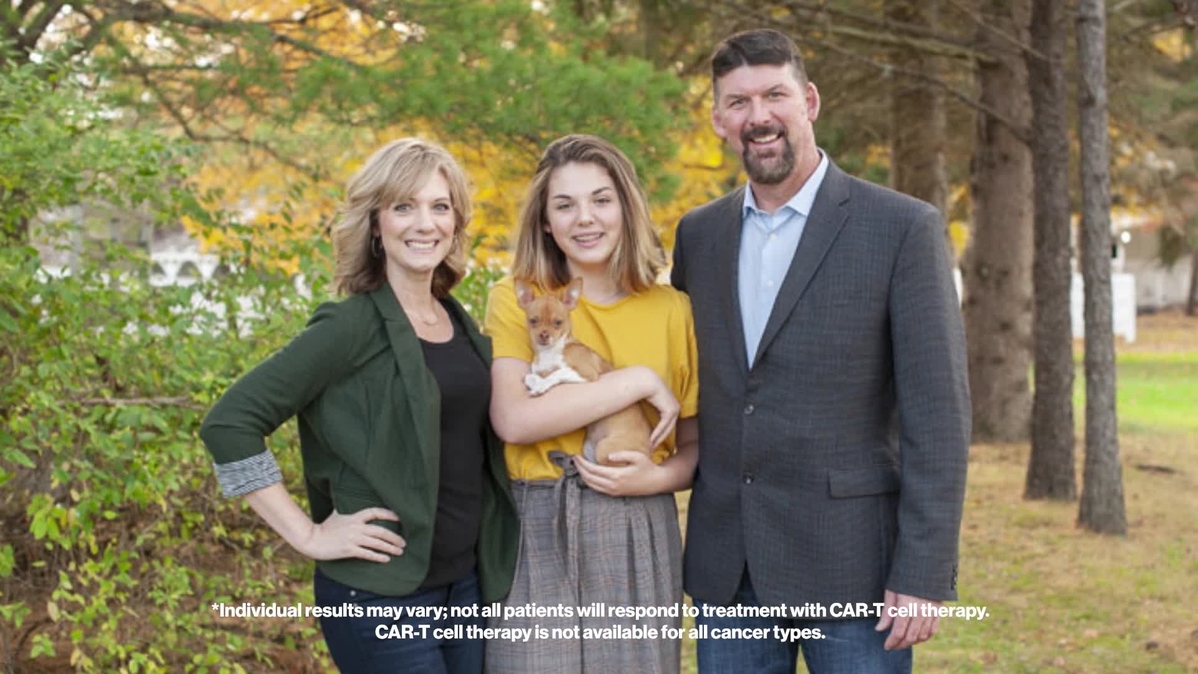The Inspiration
In the spring of 2012, Emily Whitehead was a 6-year-old girl who had undergone several rounds of chemotherapy in the hopes of eliminating the blood cancer in her body. Unfortunately, those treatments did not provide the long-lasting remission she needed. With her disease out of control and no other treatment choices on the table, Emily and her family turned to an innovative but, at the time, experimental treatment – CAR-T cell therapy.
That act of courage changed the course of her life – and eventually the lives of many others. On May 10, 2012, Emily Whitehead’s life-threatening, late-stage cancer went into remission following her treatment with an innovative CAR-T cell therapy.
CAR-T cell therapy uses a person’s own immune system to fight certain types of cancers. The person’s T cells are extracted and reprogrammed outside of the body to recognize and fight cancer cells and other cells expressing a particular antigen.
 VIDEO
VIDEO
Alongside others who received investigational CAR-T in early studies, Emily became a symbol of hope. Inspired by their journeys, Novartis became the first pharmaceutical company to significantly invest in pioneering CAR-T cell therapy research, initiating CAR-T trials enrolling patients around the world and offering patients the first CAR-T cell therapy ever approved.
At the time, the treatment felt like a miracle, and it’s incredible that we’ve gone from a handful of patients to thousands in such a short span of time, as well as more options on the way.
Tom Whitehead, Emily Whitehead’s father and co-founder of the Emily Whitehead Foundation
Changing the treatment paradigm
On May 10, 2022, Emily celebrated 10 years “cancer free.”*
Today, with our CAR-T program, we can proudly say we have changed the treatment paradigm for thousands of people affected by certain advanced blood cancers across 35 countries and with a recent approval in a new indication, we look forward to continuing to deliver the promise of CAR-T cell therapy to thousands of additional patients in the coming years.
We've come a long way since the first regulatory approval in 2017: development in this field has grown exponentially, and patients with some types of blood cancers now have several CAR-T options available – a significant medical advance given that only years before, these patients may have only had palliative care as a treatment choice. Additionally, longer-term data from CAR-T clinical trials and the real world are expected to show the impact CAR-T cell therapy has had on many more patients since Emily and the Whiteheads’ brave action.
Continuing innovation
We’re investigating next-generation platforms and working to further deliver on the promise of CAR-T and reimagining the future of oncology for years to come.
As we explore in a complex, new and uncharted area, our team is asking the big questions and seeing challenges as opportunities. We are on a path to provide new CAR-T cell therapies that go beyond incremental advances, delivering further progress for people living with cancer everywhere.
Serena De Vita, Clinical Program Leader, Transitional Clinical Oncology at NIBR (Novartis Institutes for BioMedical Research)
Using key learnings from current CAR-T therapies, we are hopeful that we may be able to gain an understanding of how to overcome challenges such as making CAR-T cells more durable, as well as how to continue broadening access to CAR-T so more people than ever before may benefit from this advanced therapeutic platform.




